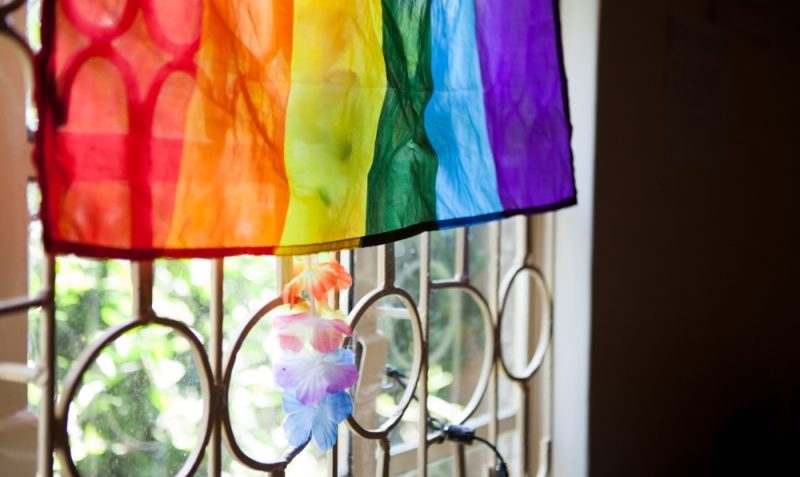Botswana’s LGBT sweet success turned sour by Government’s decision to appeal
 © Corrie Wingate
© Corrie Wingate
While the Government of Botswana has exercised its right to appeal, a decision that Frontline AIDS respects, lesbian, gay, bisexual and transgender (LGBT) campaigners in Botswana are deeply disappointed by the decision to appeal the High Court’s ruling to decriminalise homosexuality.
Last month, Botswana followed Angola, Mozambique and South Africa to become the fourth African nation to overturn colonial-era laws that banned “carnal intercourse against the order of nature” – an offence that carried a maximum sentence of seven year’s imprisonment. Commenting during the ruling, Judge Michael Leburu declared that “Human dignity is harmed when minority groups are marginalised.”
Lois Chingandu, director of evidence and influence at Frontline AIDS, said: “What we are witnessing is an alarming disconnect between overturning laws that support human rights and bolster efforts to meet Botswana’s commitment to ending AIDS by 2030, and a government that is preparing to recriminalise its gay citizens simply for being who they are.”
Frontline AIDS stands in solidarity with BONELA, our partner in Botswana, and other local civil society organisations by joining the call by national and international partners for Botswana Parliament to enact laws that protect the rights of LGBT people.
“The level of success we have had cannot be maintained without creating sustainable enabling policy and legal environments in which everyone feels that they can safely receive HIV/AIDS services without fear that they will be stigmatised and discriminated against and it would be okay because, after all, they are gay and homosexuality is illegal. Cindy Kelemi
Botswana has an impressive record in the response to HIV/AIDS, including achieving virtually no new vertical transmissions, very high levels of people who know their status, people who are on HIV treatment, and strong care and support services available. “This is a moment for the Botswana government to be bold and respect the human rights of all citizens. We must not turn back the clock on Botswana’s progress to lower HIV infections and AIDS-related deaths.” added Lois.
“There are corridor comments amongst policy makers and programmers that we don’t need to decriminalise homosexuality in order to end AIDS and that we have gotten this far without decriminalising,” said Cindy Kelemi, executive director of BONELA. “Granted, much has been achieved without having to change the law, but I ask you two things: how much more could we have achieved if we had done this earlier and how much are we willing to lose if we do not act now and decriminaliise homosexuality? We cannot end this epidemic if we do not put human rights at the centre of the response.”
Cindy added: “The level of success we have had cannot be maintained without creating sustainable enabling policy and legal environments in which everyone feels that they can safely receive HIV/AIDS services without fear that they will be stigmatised and discriminated against and it would be okay because, after all, they are gay and homosexuality is illegal. For as long as the law criminalises the gay community, there will always be this uncertainty that we will not end AIDS. Is that a risk we are willing to take?’’
We urge the Government of Botswana to reverse its decision to appeal and uphold the High Court’s welcome ruling to decriminalise homosexuality.

